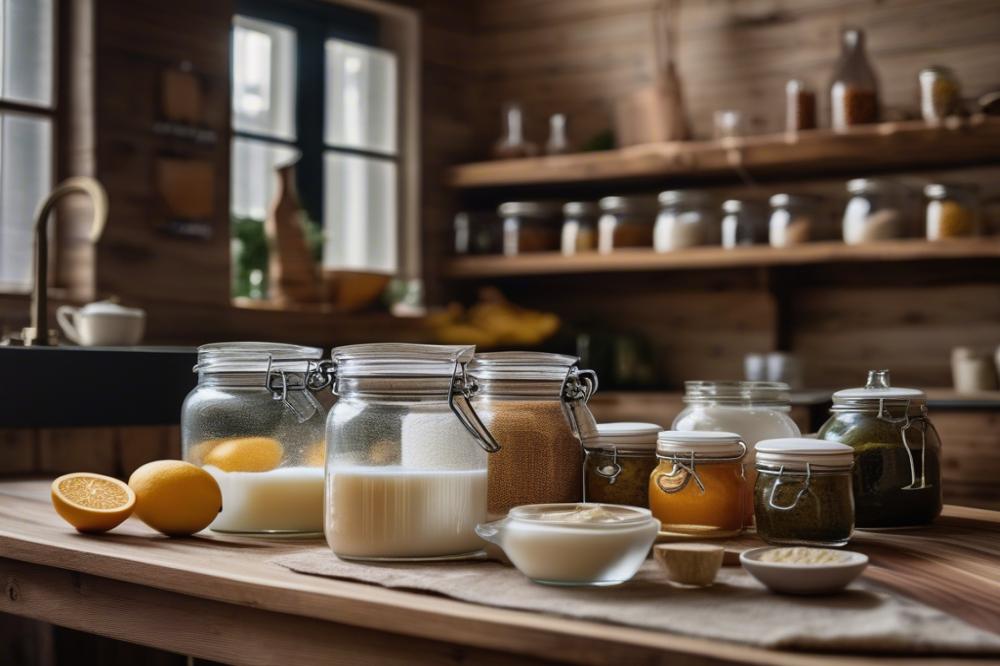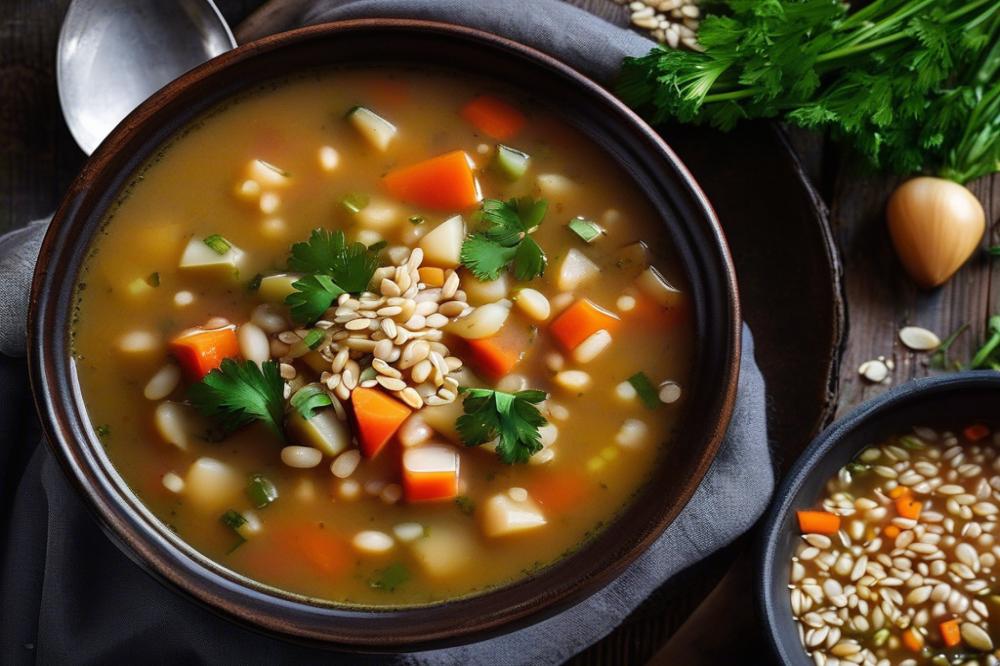Introduction
Polish cuisine is known for its hearty dishes that reflect a rich cultural heritage. It combines flavors from various regions and offers a comforting experience to those who partake in it. One of the most cherished aspects of this cuisine is the use of fermented ingredients. They add depth and a unique twist to traditional recipes.
In Polish culture, Zakwas na Żurek is a vital part of making a beloved soup called sour rye soup. This fermentation process using rye flour is not merely a culinary technique; it is steeped in tradition. Many families pass down their methods from generation to generation, highlighting the importance of homemade preparations. The soup starter is essential for creating this tangy dish that many enjoy during festive occasions or everyday meals.
Sour rye soup serves as more than just a meal. It is a cultural dish that connects people, evoking feelings of nostalgia and warmth. Families often gather around the dinner table, sharing stories and memories while enjoying a bowl of this Polish rye soup. An easy recipe for the soup not only showcases the ingredients but also emphasizes the techniques that bring this hearty dish to life. Cooking tips for creating the best variations can elevate any kitchen experience. It’s about more than just the food; it’s about the community and heritage that surrounds it.
Understanding Zakwas na Żurek
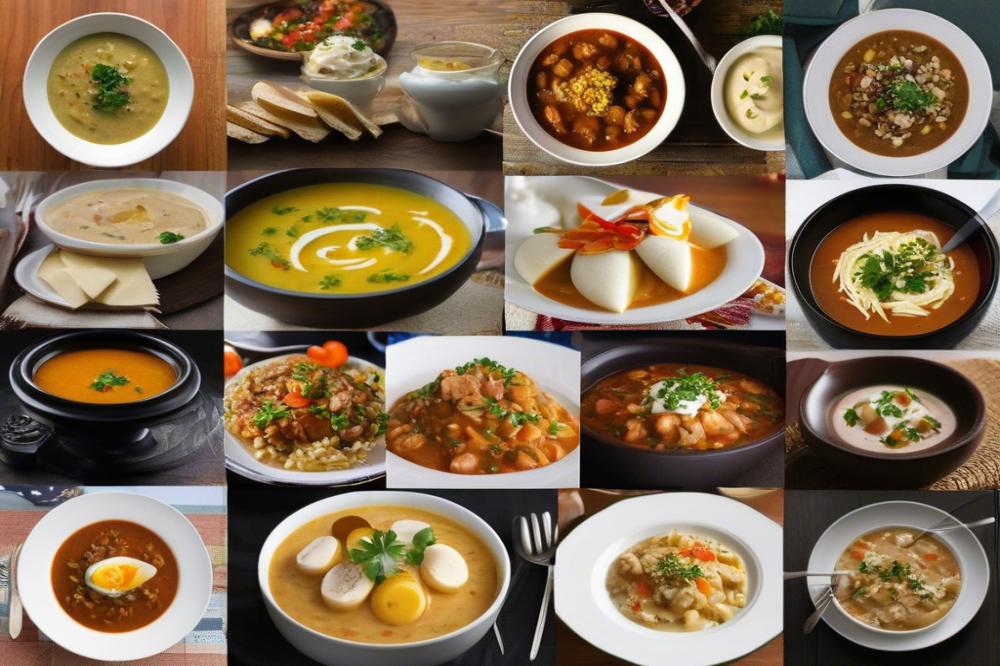
To start, Zakwas na Żurek is a fermented rye starter used to create a distinctive sour rye soup. Many Polish recipes use this ingredient, making it a staple in households. fermented rye contributes to the flavor profile of many traditional dishes. It adds depth and a slightly tangy taste that is both comforting and satisfying.
This starter acts as a key component in creating a sour rye soup. In Polish cuisine, it represents more than just a flavor; it symbolizes tradition and warmth. Homemade Zakwas can bring a personal touch to your cooking. When you prepare it, you create a link that connects you to generations before you.
Making this soup starter is an easy recipe that requires minimal ingredients. It typically involves mixing rye flour and water, allowing it to ferment for several days. This fermentation process is crucial. It develops not only the distinctive flavor but also enhances the nutritional value of the rye. The result is a delicious base ready to elevate your soup ingredients.
Cooking tips for using Zakwas in soups are simple. Adding it to your mixture should be done gradually. Striking a balance between the sourness and other flavors will yield the best results. Adjustments can also be made based on your taste preference. Remember that the sour notes are meant to shine through, making this is a cultural dish worth mastering.
Ingredients and Cooking Instructions
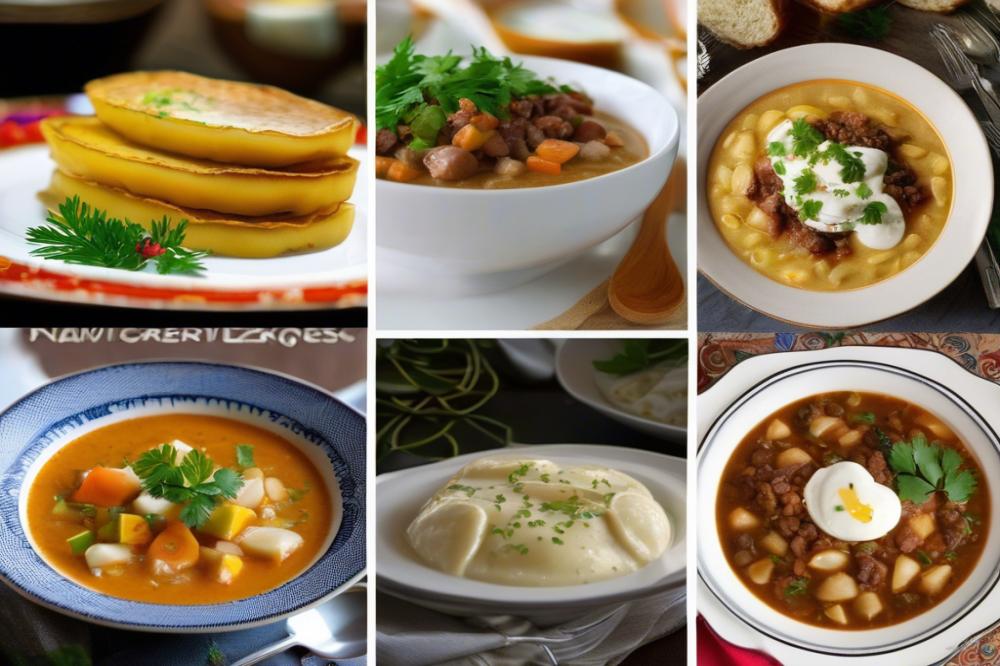
Detailed Ingredients List
To create a delicious starter for your sour rye soup, gather the following ingredients:
- Rye flour: 1 cup
- Water: 4 cups
- Garlic: 2 cloves, crushed
- Bay leaves: 2
- Whole peppercorns: 5-10
- A slice of bread: rye or sourdough
Cooking Instructions
Follow these steps to make your homemade Zakwas:
- In a large jar or bowl, combine rye flour and water. Stir until smooth.
- Add crushed garlic, bay leaves, and peppercorns to the mixture. Stir again.
- Place the slice of bread on top of the mixture. This will help with fermentation.
- Cover the jar with a cloth or loose lid to allow air to flow. This is crucial for fermentation.
- Set the container in a warm place, away from direct sunlight. A temperature between 68°F and 78°F is ideal.
Fermentation of this soup starter takes about 3 to 5 days. Check it daily for bubbles or a tangy smell, which indicate readiness. Adjust the time based on your taste preference; longer fermentation may yield a stronger flavor.
Nutritional Information
Let’s break down the nutritional aspects of the ingredients:
- Rye flour (1 cup): Approximately 400 calories, 14g protein, and 4g fat.
- Water (4 cups): 0 calories, 0g protein, and 0g fat.
- Garlic (2 cloves): About 9 calories, 0.4g protein.
- Bay leaves (2): Minimal calories, adding flavor without significant nutrients.
- Peppercorns (5-10): Approximately 5-10 calories, adding aroma and slight spice.
- Slice of bread: Varies, usually around 70-100 calories depending on type.
Creating this easy recipe offers a glimpse into Polish cuisine and its cultural dishes. Enjoy making and sharing your fermented rye for a traditional touch in any meal!
Cooking Tips for Perfect Zakwas
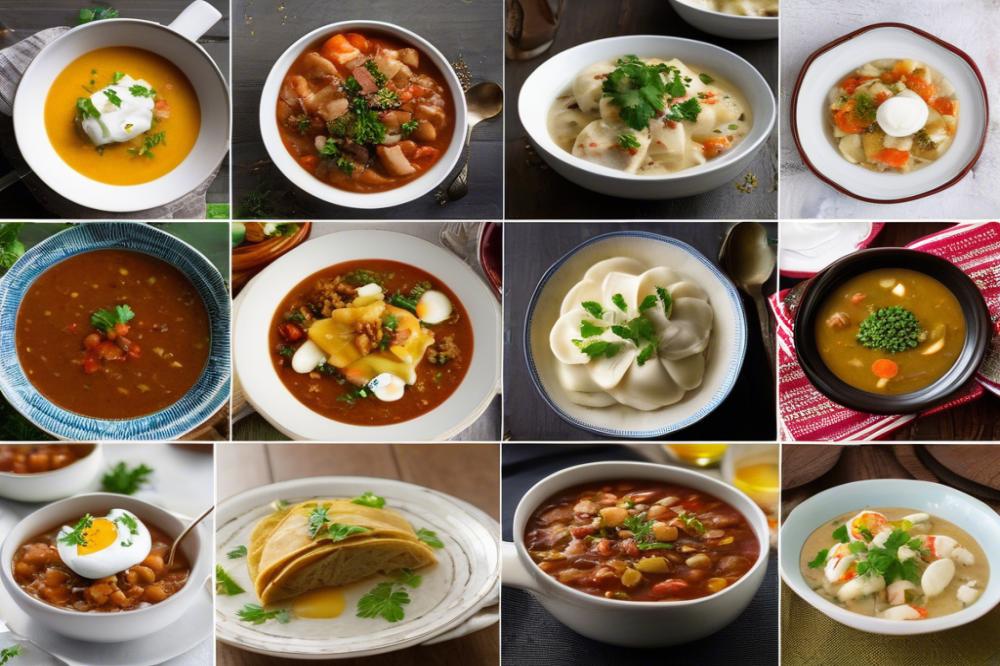
Best Practices for Fermentation
Fermentation is key for making delicious soup starter. Begin with a clean glass jar to prevent unwanted bacteria. Use whole grain rye flour for the best results, as it contains more natural yeast. Water should be at room temperature—this helps activate fermentation. A warm, dark place is ideal for the mixture. Stir the mixture daily to introduce air. This simple act aids fermentation, allowing flavors to develop. After about five days, you’ll notice bubbles indicating successful fermentation.
Storage Tips for Homemade Zakwas
Storing your homemade Zakwas correctly can extend its shelf life. Once fermentation is complete, seal the jar and refrigerate it. Cool temperatures slow down further fermentation. Use the Zakwas within a few weeks for optimal flavor. If you want it to last longer, consider freezing it in ice cube trays. This allows you to use small amounts as needed without losing freshness.
Incorporating Zakwas into Sour Rye Soup
Integrating Zakwas into your sour rye soup is quite simple. First, prepare your soup ingredients, including potatoes, vegetables, and sausage. Add the fermented rye starter to the pot during the last stages of cooking. This allows the natural sourness to blend with other flavors without overpowering them. Tasting along the way is important. Adjust seasoning as needed based on your preference.
Variations and Additions for Different Flavor Profiles
Explore variations of the traditional Polish recipe to enhance flavors. Adding smoked meats can give a hearty touch. Consider vegetables like carrots or beets for added sweetness and color. Some enjoy a hint of spice; adding a pinch of chili flakes does the trick. Fresh herbs like dill or parsley also improve the dish’s aromatic quality. Don’t hesitate to experiment until you find your favorite combination. Every family has its take on this cultural dish, making each bowl uniquely personal.
Cultural Significance of Zakwas na Żurek
In Poland, zakwas has deep roots in history. This fermented rye has been a cornerstone of the nation’s culinary traditions for centuries. Sour rye soup, known as żurek, embodies the essence of Polish cuisine. Families have passed down this traditional Polish recipe from generation to generation, showcasing how food can keep stories alive.
Popular occasions to serve this soup starter highlight its importance in daily life. Many households enjoy it during Easter celebrations. It symbolizes renewal and the arrival of spring. In addition, weddings and family gatherings often feature this hearty dish. The warmth it brings is unmatched, adding to the joy of such special moments.
Anecdotes about zakwas often arise during family meals. One grandmother might share how she made homemade zakwas from scratch years ago. Her eyes twinkle as she recalls the smell that filled her kitchen. Another might talk about a friend’s cooking tips for making the soup more flavorful. Stories like these contribute to a sense of community and togetherness.
Throughout Poland, delicious bowls of sour rye soup are not just meals; they are connections to the past. Each serving tells a tale, whether it is about the soup ingredients or how family gatherings revolve around it. The joy of sharing this cultural dish unites many. It is more than just a recipe; it is the soul of Polish hospitality.
Embracing Polished Tradition in Your Kitchen
Polish cuisine thrives on traditions that date back centuries, and zakwas na żurek is a prime example of this heritage. This fermented rye mix is not just an ingredient; it serves as the heart of many beloved soups. Authentic flavor is achieved by using homemade versions rather than store-bought alternatives. Making it yourself elevates every dish you prepare, allowing you to appreciate the depth of Polish flavors.
Trying to make your own fermented rye is an exciting culinary adventure. It invites you into the world of fermentation, a process that has culinary significance in many cultures. The satisfaction of creating a soup starter from scratch is unmatched. You’ll likely find that the aroma and taste of a dish made with your own zakwas far surpass anything store-bought.
In modern kitchens, there is space for age-old recipes alongside contemporary practices. Exploring traditional meals can enrich your cooking experience and offer a genuine taste of history. Don’t shy away from embracing these staples. Instead, welcome them into your weekly menu and discover how they can complement your lifestyle. As you embark on your journey in Polish cooking, remember that every bowl of soup tells a story. The connections we make with food can enhance our daily lives, bridging past and present with every spoonful.

